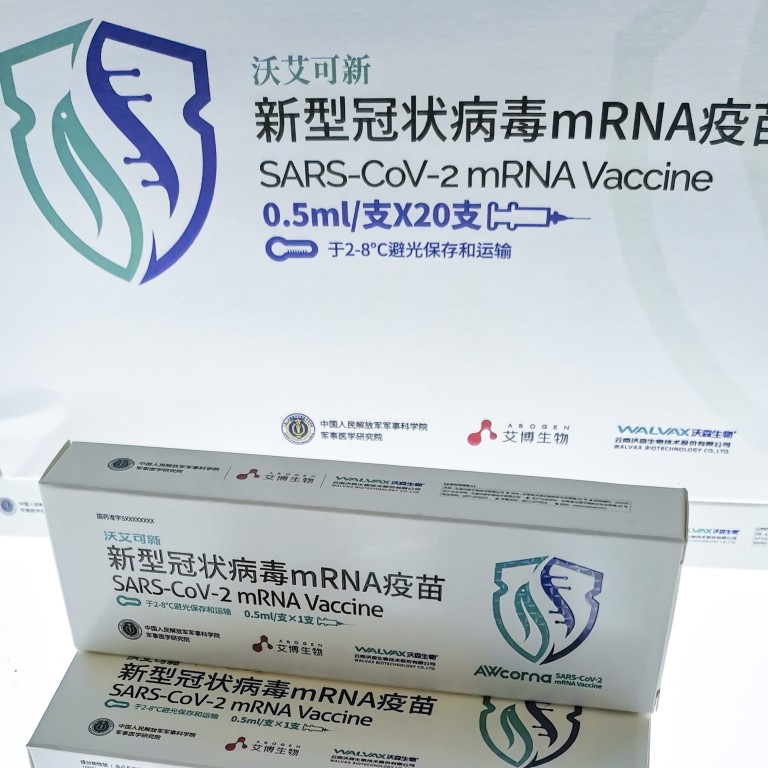
China’s first mRNA Covid-19 vaccine approved for use in Indonesia
- Walvax’s AWcorna gets the go-ahead for emergency use by Indonesian authorities, and is ‘intensively’ advancing with Chinese regulator
- Company chairman Li Yunchun says China has achieved full localisation and independent supply chain for the vaccine on the mainland
The approval for the vaccine – co-developed by Yuxi Walvax with Suzhou Abogen Biosciences and the Academy of Military Sciences – is the first authorisation for a Chinese vaccine which uses the hi-tech platform adopted by Pfizer-BioNTech and Moderna.
China has yet to approve any mRNA vaccine although clinical trials have been approved for several. BioNTech, which partnered with Shanghai Fosun Pharmaceutical, has had its jab stuck in administrative review for a year.
Three years into the pandemic, more than 90 per cent of China’s 1.4 billion population have received two doses of Covid-19 shots and fewer than 60 per cent have had a booster, mostly with traditional inactivated vaccines.
According to the People’s Daily report, Walvax is intensively advancing emergency authorisation with the Chinese drug regulator. The company said earlier this year that it was still processing clinical trials data.
The AWcorna vaccine was developed in early 2020 and started late-stage clinical trials in Indonesia in October. It has also been tested in Mexico and Guangxi province in southern China.
“At present, China has fully mastered the key core technology of mRNA vaccines, and has achieved full localisation and independent control in the whole supply chain, including the main raw and auxiliary materials and equipment,” Walvax chairman Li Yunchun said in the report.
No serious adverse events were recorded in phase 1 clinical trial data for the AWcorna vaccine, published in February by The Lancet Microbe.
How China’s drive to develop its own state-of-the-art Covid vaccine is going
Correspondence published by Cell Research in May showed that a third dose of AWcorna, given four weeks after inoculation with two shots of the inactivated Sinovac vaccine, induced neutralising antibodies – an indicator of protection – at nearly four times that of another dose of Sinovac against the original type Sars-CoV-2 virus.
Levels of the antibodies dropped significantly against the Omicron variant, but four weeks after the AWcorna booster were 4.39 times higher than the equivalent three shots of Sinovac.
According to a paper published in Cell, the Walvax-Abogen-AMS candidate vaccine can be stored at 2 to 8 degrees Celsius (35.6 to 46.4 Fahrenheit) and kept at room temperature for up to a week.
What are the coronavirus mRNA vaccines and how do they work?
Walvax has built an mRNA vaccine production facility with an annual capacity of 200 million doses at Yuxi, in the southwestern province of Yunnan.
Walvax has signed a technology transfer agreement with PT Etana Biotechnologies Indonesia to produce AWcorna vaccines there, which are also expected to be supplied to neighbouring Muslim countries.
Penny K. Lukito, who heads Indonesia’s food and drugs regulator BPOM, said all locally produced vaccines had received halal certification.

